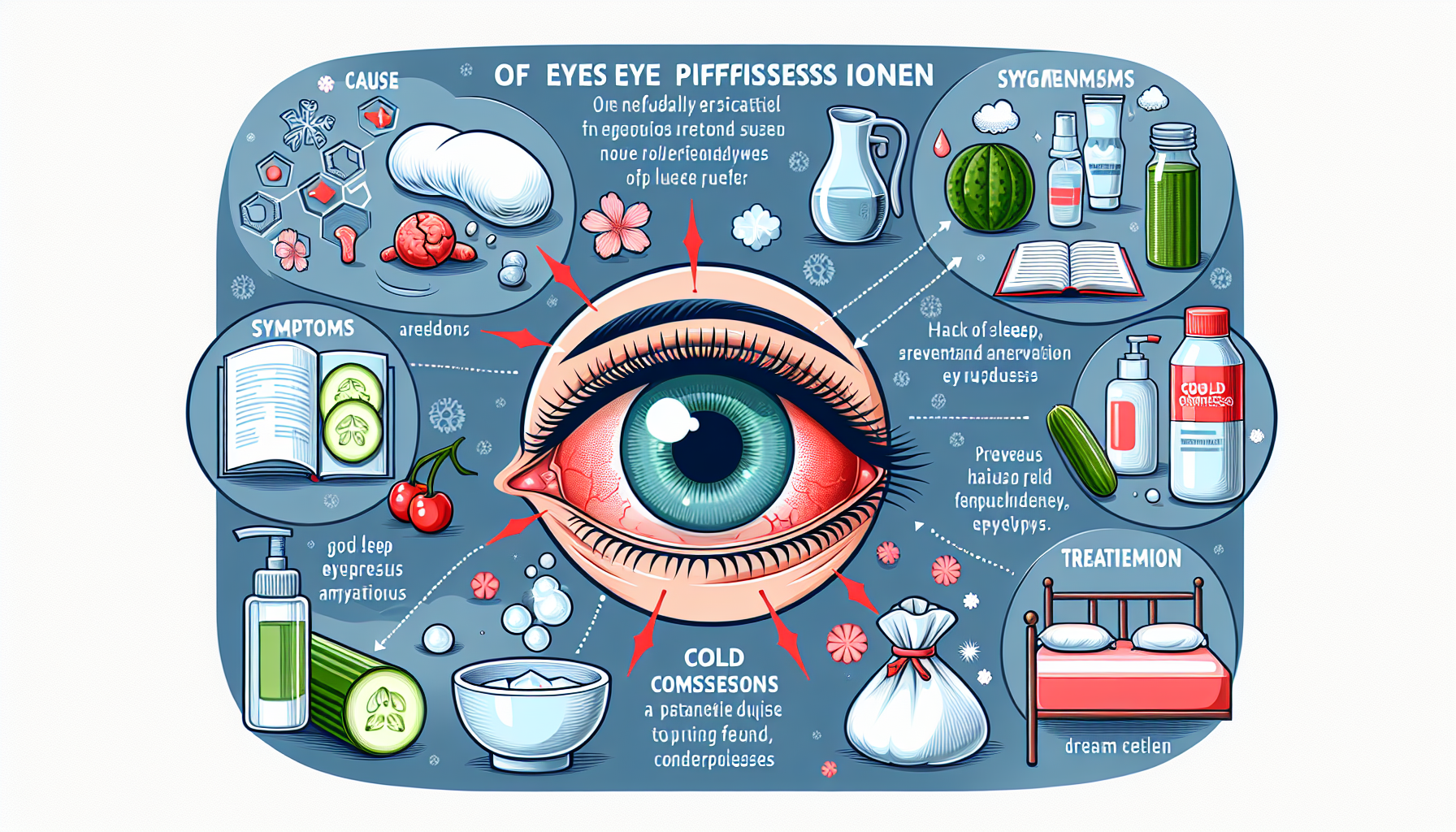Have you ever woken up in the morning with puffy eyes, feeling like your eyelids are weighted down? Or maybe you've cried or yawned to the point where your eyes felt sore and swollen? It's surprising how often our eyes, a sensitive part of our body, can become puffy for various reasons. While there are many remedies to try and reduce puffiness, recurrent swelling could be a sign of underlying health issues. Today, let's explore some common causes of eye puffiness and how to address them!
1. Sleep Deprivation
Have you ever wondered why your under-eyes are swollen even after thinking you've blinked off to sleep? The culprit might be a lack of sleep. Dr. Anar Mikailov, co-founder of Skintensive and a dermatology expert, explains, “Sleep deprivation results in increased levels of certain hormones that lead to fluid retention.” When we don't sleep enough, our bodies struggle to remove toxins and waste. As a result, accumulation can lead to swelling, manifesting in puffy eyes.
For example, a common scenario is someone who pulls an all-nighter to meet a deadline for work or school. The next day, they stare in the mirror, only to be greeted by the reflection of tired and swollen eyes. This is a classic sign that the body is unable to detoxify due to inadequate sleep.
2. Sleep Position
It's not just a lack of sleep that can lead to puffy eyes; the way you sleep can play a significant role as well. If you tend to sleep face-down on your pillow, you may find your eyes more swollen in the morning. “When you sleep on your stomach, fluid can accumulate around the face, particularly near the eyes,” explains Dr. Mikailov.
Consider this: if you sleep like a starfish with your head flat on the bed, gravity can also cause fluids to pool around your eyes. A simple solution is to elevate your head slightly with an extra pillow. This can help keep fluids from accumulating overnight, reducing morning puffiness.
3. Hormones
For those who menstruate, hormonal fluctuations could be causing your eyes to swell. During the premenstrual phase, elevated levels of progesterone cause the body to retain excess fluids, visible as puffiness, particularly around the face and eyes. So, if you notice that your eyes are likely to be puffy right before your period, you're not alone—it's a common experience among many.
4. Allergies
Seasonal allergies can also lead to swollen eyes, often accompanied by itching and discomfort. For instance, when spring arrives and flowers begin to bloom, many people experience watery and puffy eyes. “Increased histamine secretion leads to inflammation and swelling, commonly manifested in the face,” Dr. Mikailov adds. This hit home for a friend of mine who always carries allergy pills during pollen season, highlighting how allergies can drastically affect appearance.
5. Dehydration
Paradoxically, dehydration can also contribute to puffy eyes. When the body is low on water, it tends to hold onto what little it has, struggling to eliminate waste. Over time, excessive fluid retention can cause swelling, a phenomenon known as "fluid retention." Imagine a scenario where you've spent a long day out, perhaps enjoying a sunny picnic without enough hydration; the next day, your body showcases its displeasure through bloated eyes.
6. Crying
Finally, let's not forget about good old tears. “When you cry, the tissues around your eyes absorb fluid from the tears, resulting in swelling,” says Dr. Mikailov. Moreover, hastily wiping away tears can irritate the eyelids, leading to further swelling. Dr. Marisa Garshick, another dermatologist, concurs and adds, “Crying can cause puffiness and inflammation due to the eyes' reaction to tears.” Think back to a time when you shed tears during an emotional movie; the aftermath often results in swollen eyes, a reminder of the feelings experienced.
Conclusion
Puffy eyes can be caused by a variety of factors, from lifestyle habits to hormonal changes and even emotional states. While there are many ways to address eye puffiness, understanding the underlying causes is essential. By adjusting your sleep techniques, staying hydrated, managing allergies, and getting enough rest, you can combat this pesky issue. Next time you look in the mirror and see those familiar swollen eyes, consider these insights and take action to feel your best!
